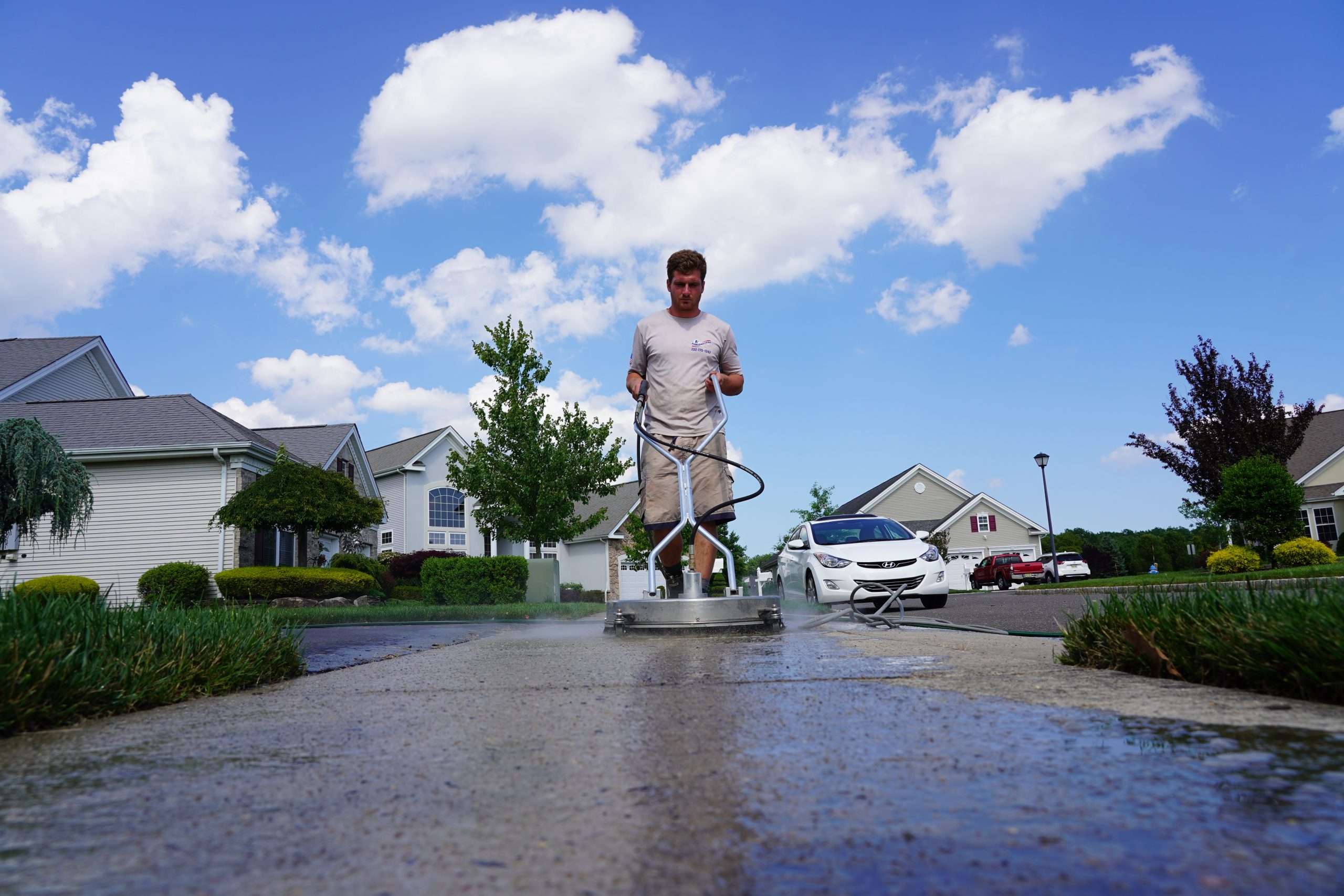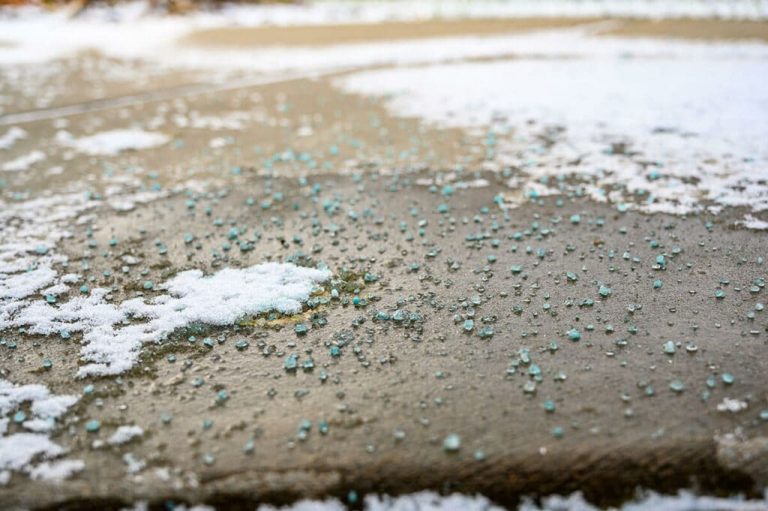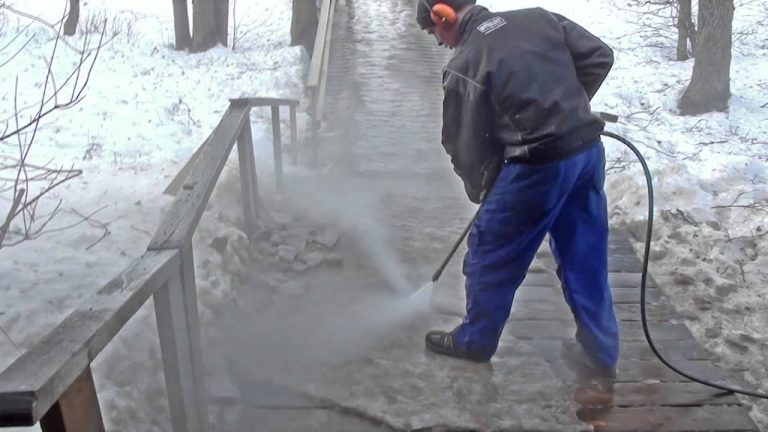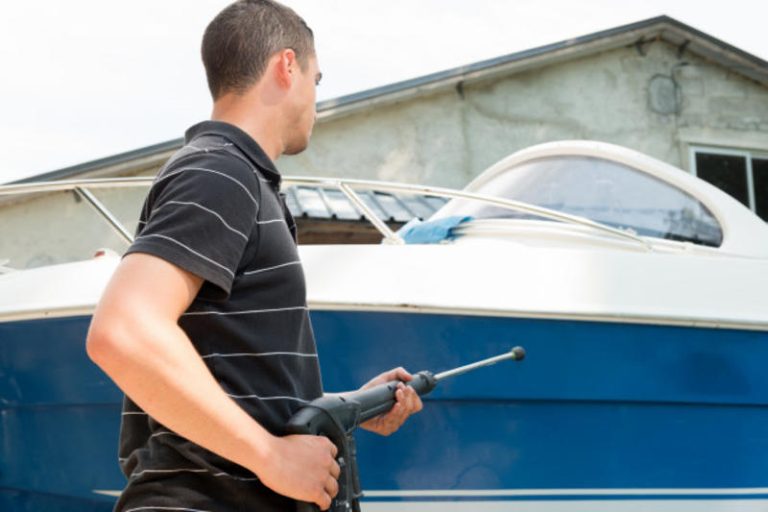
Sealing a driveway is one of the best ways to protect it from moisture, UV damage, oil stains, and general wear and tear. But if you’re planning to power wash your driveway, you might be wondering: will pressure washing remove that protective sealant?
It’s a fair question — and the answer isn’t totally black and white.
The short version is: yes, pressure washing can strip driveway sealant — but only under certain conditions. It depends on the type of sealer, the age of the seal, your pressure washer settings, and how you use the equipment.
In this article, we’ll break it all down:
- What driveway sealants actually do
- The different types of sealers and their vulnerability to pressure
- How pressure washing affects sealed surfaces
- Best practices for cleaning without damaging your seal
- When to reseal and how to tell if it’s time
Let’s help you protect your investment while keeping things clean! 🧽💪
What Does Driveway Sealant Actually Do?
Driveway sealants create a protective barrier over the surface of your concrete or asphalt. Think of them like sunscreen for your driveway. ☀️🛡️
Depending on the type, sealants can:
- Repel water 💧
- Prevent oil, grease, and chemical stains 🛢️
- Reduce UV fading ☀️
- Protect against freeze/thaw cycles ❄️
- Minimize cracking and erosion 🪨
- Make cleaning easier! 🧼
There are two main categories:
- Asphalt Sealers – Usually black, used on asphalt driveways.
- Concrete Sealers – Clear or slightly tinted, used on concrete surfaces.
Each has different strengths and weaknesses — and different levels of resistance to pressure washing.
Can Pressure Washing Remove Sealant?
Yes, especially if you’re using high PSI and a narrow spray pattern.
Here’s how it happens:
- High-pressure water can break down the sealant layer, particularly if it’s old or poorly applied.
- Jetting water at close range may erode spots unevenly, creating patchy protection.
- The chemical properties of some cleaning detergents used in power washing can weaken sealants.
If you see streaking, discoloration, or dull patches after pressure washing — that’s a strong sign you’ve worn down the seal. ⚠️
Which Types of Sealant Are Most at Risk?
Let’s look at which types of driveway sealers are more or less likely to be affected:
✅ More Resistant to Pressure Washing:
- Penetrating Sealers (Silane/Siloxane)
These soak into the concrete and form a chemical bond within the pores. Since they don’t form a surface layer, they’re very hard to strip with pressure. - High-Quality Urethane or Epoxy Coatings
Durable and chemical-resistant, these heavy-duty coatings can hold up to moderate power washing if properly applied.
❌ More Vulnerable to Pressure Washing:
- Acrylic Sealers (Water- or Solvent-Based)
These form a film on top of the surface, which can wear away over time — especially under high pressure or harsh detergents. - Old, Thin, or Worn-Out Sealant Layers
Even a good sealer will lose integrity over time. A driveway sealed 2+ years ago may not withstand aggressive cleaning.
Best Practices: How to Pressure Wash Without Stripping the Seal 🧼🛡️
If your driveway is sealed and you want to clean it without damaging the sealant, follow these tips:
✅ 1. Use a Wide Spray Nozzle (25° or 40°)
Avoid narrow, high-impact nozzles (like 0° or 15°), which concentrate the force too much. A wider spray distributes pressure more evenly.
✅ 2. Keep the PSI Under 2,500
Most sealants can handle up to 2,500 PSI if applied correctly. Going over that increases your chances of stripping the surface layer.
✅ 3. Maintain a Safe Distance
Keep the nozzle at least 12–18 inches from the surface at all times. Too close = too strong.
✅ 4. Test a Small Area First
Before cleaning the whole driveway, test a small corner. Look for:
- Changes in sheen or gloss
- Peeling or bubbling
- Color fading or streaking
This gives you a chance to adjust your method before it’s too late.
✅ 5. Avoid Harsh Detergents
Use only cleaners labeled as safe for sealed surfaces. Acidic or degreasing chemicals can break down sealer bonds.
Browse Amazon Here For Power Washer Cleaners Safe For Sealed Surfaces
✅ 6. Rinse Gently After Applying Soap
Use a low-pressure rinse nozzle to clean off detergent without blasting the surface. Don’t let soap sit for more than a few minutes.
✅ 7. Re-Seal Regularly
If your seal is already wearing thin, even gentle pressure washing might expose the surface beneath. Regular resealing keeps your driveway protected and pressure-wash ready. 💡
How Often Should You Re-Seal Your Driveway?
Here’s a rough guideline based on the type of sealer:
| Sealer Type | Reseal Frequency |
|---|---|
| Acrylic (Concrete) | Every 1–3 years |
| Penetrating Sealer | Every 3–7 years |
| Asphalt Sealer | Every 2–4 years |
| Epoxy/Urethane | Every 3–5 years |
After pressure washing, check the surface for water beading. If water immediately soaks in rather than forming droplets, your seal may be compromised. 💧⬇️
What If I Already Stripped the Seal?
Don’t panic! If pressure washing has removed your sealant, here’s what to do:
- Let the surface dry completely (48–72 hours)
- Clean off any remaining residue or dirt
- Apply a new coat of the same type of sealant
- Follow manufacturer instructions for drying and curing
- Avoid washing or parking on the surface for at least 24–48 hours
A freshly resealed driveway not only looks better — it protects better too. ✨
Should You Pressure Wash Before Sealing?
Absolutely — and it’s actually the ideal preparation step.
Cleaning your driveway with a pressure washer (at the right PSI) removes:
- Dirt
- Oil stains
- Algae or mold
- Old, flaking sealant
Once dry, the surface will be perfectly prepped for a new coat of sealer. Just be sure to allow enough drying time (often 24–48 hours) before applying sealer.
Final Thoughts
So, does pressure washing strip waterproof sealant from driveways?
✅ Yes — but only if you’re not careful.
With the right nozzle, PSI, technique, and awareness of your surface, you can safely clean a sealed driveway without compromising protection.
Here’s your takeaway:
- Know what kind of sealer you have
- Adjust your pressure washer accordingly
- Use mild cleaners and a wide spray angle
- Reseal regularly to keep your surface protected
Treat your driveway well, and it’ll stand strong through the seasons — clean, sealed, and safe. 🧼🛻🌧️
Browse Amazon Here For Top Rated Power Washers And Accessories






